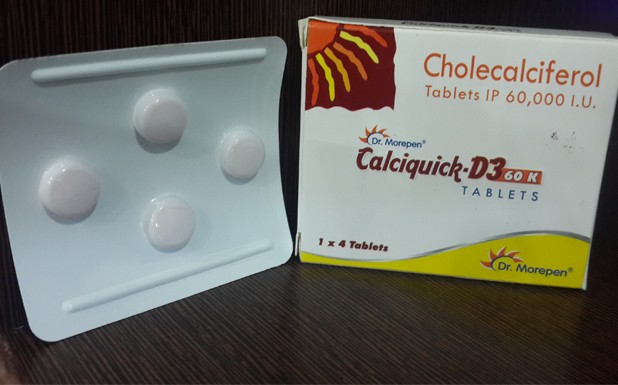

Prevalence of 25(OH) vitamin D insufficiency and deficiency in chronic kidney disease stage 5 patients on hemodialysis. Further studies are warranted to identify the therapeutic target level of 25(OH)D in hemodialysis patients, allowing beneficial effects on iPTH.ġ. It also allowed a significant decrease in iPTH levels. Conclusion: Monthly administration of a high dose of VD3 over a long period of nine months in hemodialysis patients was found to be safe and beneficial in VD3 replenishment. No events of hypercalcemia were reported, and no patient discontinued the monthly VD3 supplementation. Blood levels of calcium, phosphorus, and alkaline phosphatase were stable during the study period. Vitamin D serum levels were typically measured immediately before the next monthly dose was administered. iPTH levels decreased significantly when levels of 25(OH)D exceeded 30ng/ml at the end of the nine months. A similar effect was observed with 1, 25(OH)2D levels. Blood levels of 25(OH)D increased significantly in 82.6% of the patients to above 30 ng/ml. Results: We could recruit a cohort of 23 patients. The data analyzed were blood levels of calcium, phosphorus, alkaline phosphatase, 25(OH)D, 1,25(OH)2D and intact parathyroid hormone (iPTH) done every three months.

The dose of VD3 (300,000 IU) was administered orally and monthly from April to December 2020 (9 months) at the dialysis unit. Methods: A single-center clinical trial assessing the benefits of high dose VD3 in hemodialysis patients.

This study aims to assess the safety of such practice and its benefits on some of the parameters of Chronic Kidney Disease- Mineral and Bone Disorder (CKD-MBD). The company says the second part of the study will include dosing subjects for 6 hours with repeated administrations over a two-week period which can be used in its first Phase 2 study for stroke and TBI.Background: Different studies have shown that hemodialysis patients require higher doses of Vitamin D3 (VD3) than the general population to achieve satisfactory replenishment. Moreau telling Proactive the committee tasked with reviewing the program has confirmed that there were no safety or tolerability issues with the highest dose, which was able to maintain plasma DMT concentrations at targeted levels and which was below the established psychedelic dose. The company is looking to investigate DMT for treatment of stroke and traumatic brain injury. Algernon Pharmaceuticals CEO Christopher Moreau joined Steve Darling from Proactive to provide an update on subsidiary Algernon NeuroScience successfully completing the highest planned single dose of its escalating Phase 1 clinical study of an intravenous formulation of AP-188 or DMT.


 0 kommentar(er)
0 kommentar(er)
